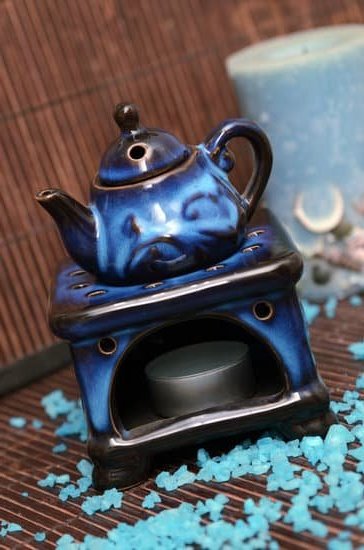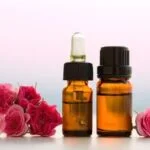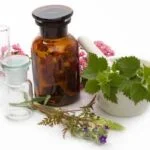Aromatherapy plays a significant role in enhancing skin health and promoting overall well-being. The question “what does aromatherapy do for skin?” is a common inquiry among skincare enthusiasts seeking natural solutions to improve their skin’s condition. Aromatherapy involves the use of essential oils extracted from plants to stimulate the senses, leading to various therapeutic benefits for the mind, body, and skin.
Essential oils used in aromatherapy are highly concentrated plant extracts that have potent healing properties. When these oils are applied to the skin, they can penetrate deep into the layers, delivering nourishment and promoting cell regeneration. Aromatherapy works on the skin by addressing specific concerns such as inflammation, acne, dryness, or signs of aging through its soothing, hydrating, and rejuvenating effects.
The benefits of aromatherapy for skin health are manifold. Not only does it help in maintaining a healthy complexion, but it also aids in managing various skin conditions naturally. By incorporating essential oils into your skincare routine, you can achieve a radiant glow, improved elasticity, and enhanced texture. In the following sections, we will delve deeper into how aromatherapy works on the skin and explore the top essential oils recommended for optimal skin care results.
Understanding the Basics
Aromatherapy is a holistic healing treatment that uses natural plant extracts, known as essential oils, to promote overall well-being. These essential oils are derived from various parts of plants, including flowers, leaves, and roots, and are believed to have therapeutic properties that can benefit both the mind and body. Aromatherapy has been used for centuries in different cultures for its ability to improve mood, reduce stress, alleviate pain, and even support skin health.
What Is Aromatherapy?
Aromatherapy is a form of alternative medicine that harnesses the power of scent to stimulate the senses and promote relaxation. When used on the skin, essential oils penetrate through the pores and are absorbed into the bloodstream, where they can exert their therapeutic effects.
Each essential oil has unique properties and benefits that can address specific skin concerns or enhance overall skin health. From hydrating dry skin to calming inflammation and reducing signs of aging, aromatherapy offers a natural solution for achieving radiant and healthy skin.
The Science Behind Aromatherapy
The key to understanding what aromatherapy does for the skin lies in its chemical composition. Essential oils contain complex mixtures of volatile compounds that interact with receptors in the brain when inhaled or with receptors in the skin when applied topically.
These compounds can trigger various physiological responses, such as activating circulation, promoting cell regeneration, or combating bacteria. By leveraging the potent properties of essential oils through aromatherapy practices like massages, baths, or skincare products, individuals can experience visible improvements in their skin’s appearance and health.
How Aromatherapy Works on the Skin
Aromatherapy works on the skin through the use of essential oils, which are highly concentrated plant extracts that have various therapeutic properties. When applied to the skin, these essential oils can penetrate into the deeper layers of the skin and provide nourishment, hydration, and healing benefits. The molecules of the essential oils are small enough to be easily absorbed by the skin, allowing them to work effectively in treating various skin concerns.
The Role of Essential Oils in Aromatherapy
Essential oils used in aromatherapy contain active compounds that have specific effects on the skin. For example, lavender essential oil is known for its calming and soothing properties, making it a popular choice for addressing sensitive or inflamed skin. Tea tree essential oil has antibacterial and anti-inflammatory effects, making it effective in treating acne-prone skin. By choosing the right essential oils based on their properties, aromatherapy can target specific skin issues and promote overall skin health.
The Science Behind Aromatherapy for Skin Care
When applied to the skin, essential oils interact with the body’s chemistry through absorption and inhalation. The molecules of these oils can trigger responses in the brain that affect emotions, stress levels, and ultimately, skin health.
For example, inhaling bergamot essential oil can help reduce stress levels, which in turn can prevent stress-related flare-ups such as eczema or psoriasis. The holistic approach of aromatherapy addresses not just the physical symptoms of skin conditions but also their emotional and mental triggers.
Incorporating aromatherapy into your skincare routine can not only improve the appearance of your skin but also enhance your overall well-being. By understanding how aromatherapy works on the skin and choosing the right essential oils for your specific needs, you can harness the power of nature to achieve healthy and radiant skin.
Benefits of Aromatherapy for Skin Health
Aromatherapy has gained popularity not only for its calming and therapeutic effects but also for its many benefits for skin health. When it comes to skincare, aromatherapy can be a powerful ally in achieving healthy, glowing skin. By incorporating essential oils into your skincare routine, you can address various skin concerns and enhance the overall health of your skin.
Here are some of the key benefits of using aromatherapy for skin health:
- Hydration: Essential oils like rose, lavender, and geranium are known for their hydrating properties, helping to nourish and moisturize the skin effectively.
- Anti-Aging: Certain essential oils contain antioxidants that can help reduce the signs of aging, such as wrinkles and fine lines. Oils like frankincense, rosehip, and carrot seed oil are excellent choices for promoting youthful-looking skin.
- Acne Treatment: Tea tree oil and lavender oil are popular choices for addressing acne-prone skin due to their antibacterial properties. These oils can help reduce inflammation and fight off acne-causing bacteria effectively.
Incorporating aromatherapy into your skincare routine can not only improve the appearance of your skin but also provide a holistic approach to maintaining healthy skin. By understanding the benefits of different essential oils and how they work on the skin, you can tailor your aromatherapy regimen to target specific skin concerns effectively.
Top Essential Oils for Skin Care in Aromatherapy
Aromatherapy has gained popularity for its numerous benefits in promoting skin health. Essential oils, the cornerstone of aromatherapy, play a vital role in nourishing and rejuvenating the skin. Whether you have dry, oily, sensitive, or aging skin, there are specific essential oils that can address your concerns effectively. These natural oils offer therapeutic effects along with aromatic pleasure, making them a popular choice for skincare routines.
One of the most well-known essential oils for skin care is lavender oil. Lavender oil is renowned for its calming and soothing properties, making it ideal for sensitive or irritated skin. It also possesses antibacterial and anti-inflammatory properties that can help combat acne and promote overall skin health.
Another popular essential oil is tea tree oil, which is known for its powerful antibacterial and antifungal properties. Tea tree oil can be effective in reducing acne breakouts and controlling excess oil production.
Rosehip oil is another essential oil that is highly beneficial for the skin. Rich in vitamins A and C, antioxidants, and essential fatty acids, rosehip oil can help hydrate the skin, improve texture, reduce hyperpigmentation, and enhance collagen production.
Additionally, frankincense oil is prized for its anti-aging properties as it helps reduce the appearance of wrinkles and fine lines while promoting cell regeneration. These essential oils are just a few examples of the many options available to address various skin concerns through aromatherapy.
| Essential Oil | Skin Benefits |
|---|---|
| Lavender Oil | Calming sensitive skin, combating acne |
| Tea Tree Oil | Reducing acne breakouts, controlling excess oil production |
| Rosehip Oil | Hydrating skin, improving texture, reducing hyperpigmentation |
| Frankincense Oil | Reducing wrinkles and fine lines, promoting cell regeneration |
Techniques for Using Aromatherapy on the Skin
Aromatherapy offers a variety of techniques that can be used to improve skin health and overall well-being. One common method is through the use of aromatherapy massage. By diluting essential oils in a carrier oil and applying them to the skin during massage, the oils are effectively absorbed, promoting relaxation and providing benefits to the skin. This technique not only helps in moisturizing the skin but also aids in reducing inflammation, soothing irritated skin, and improving circulation.
Another popular technique for using aromatherapy on the skin is through facial steaming. Adding a few drops of essential oils to hot water and allowing the steam to envelop the face can be both relaxing and beneficial for the skin. The steam helps to open up pores, enabling better penetration of the essential oils into the skin, thereby enhancing their therapeutic effects. This method can help in deep cleansing, hydrating, and rejuvenating the skin.
Furthermore, incorporating aromatherapy into your skincare routine through homemade face masks can deliver powerful results for your skin. By combining essential oils with other natural ingredients like honey, yogurt, or clay, you can create customized masks that target specific skin concerns such as acne, dryness, or aging. These masks not only provide a sensorial experience but also deliver potent nutrients and antioxidants that work synergistically with essential oils to promote healthy and glowing skin.
| Aromatherapy Technique | Benefits |
|---|---|
| Aromatherapy Massage | Moisturizes skin, reduces inflammation, soothes irritated skin, improves circulation |
| Facial Steaming | Opens up pores for better penetration of essential oils into the skin; deep cleanses, hydrates & rejuvenates |
| Homemade Face Masks | Customized solutions targeting specific skin concerns like acne & aging; delivers potent nutrients & antioxidants |
These are just some techniques for using aromatherapy on the skin that can be easily implemented at home. Whether you choose to indulge in a relaxing massage with essential oils or pamper your skin with a DIY face mask, incorporating aromatherapy into your skincare routine can provide numerous benefits for your complexion. Experimenting with different methods and finding what works best for your unique needs can help you harness the power of aromatherapy for healthy and radiant-looking skin.
Addressing Common Skin Concerns With Aromatherapy
Aromatherapy is not just a pleasant-smelling practice; it can also address common skin concerns and improve overall skin health. By harnessing the power of essential oils, aromatherapy can target specific issues such as acne, aging, inflammation, and dryness. Here are some common skin concerns that aromatherapy can help address:
- Acne: Essential oils like tea tree, lavender, and rosemary have antibacterial and anti-inflammatory properties that can help combat acne-causing bacteria and reduce redness and swelling.
- Aging: Frankincense, rosehip seed, and geranium essential oils are known for their abilities to promote cell regeneration, improve elasticity, and reduce the appearance of wrinkles and fine lines.
- Inflammation: Chamomile, helichrysum, and calendula essential oils are excellent choices for calming sensitive or irritated skin due to their soothing and anti-inflammatory properties.
In addition to these specific concerns, aromatherapy can also help improve overall skin health by promoting circulation, increasing hydration levels, and balancing oil production. It’s important to note that essential oils should be diluted with a carrier oil before applying them to the skin to prevent irritation or sensitization. Consulting with a qualified aromatherapist or skincare professional can help determine the best essential oils and concentrations for your unique skin needs.
- Dryness: To combat dryness, consider using hydrating essential oils like rose otto, sandalwood, or myrrh to nourish the skin and lock in moisture.
- Sensitivity: For sensitive skin types, gentle essential oils such as chamomile roman, neroli, or patchouli can help calm irritation and strengthen the skin’s barrier function.
- Pigmentation: To address hyperpigmentation or uneven skin tone, citrus essential oils like lemon, bergamot, or sweet orange can brighten the complexion and fade dark spots over time.
By incorporating aromatherapy into your skincare routine with targeted blends and proper dilution methods based on your individual needs,you can effectively address common skin concerns while enjoying the sensory benefits of this holistic practice.
Tips for Incorporating Aromatherapy Into Your Skincare Routine
Aromatherapy can offer numerous benefits for the skin, making it a popular addition to skincare routines around the world. One of the main advantages of incorporating aromatherapy into your skincare routine is its ability to address various skin concerns naturally. This holistic approach utilizes the healing properties of essential oils to promote healthy and radiant skin. By understanding what does aromatherapy do for skin, individuals can tailor their routines to target specific issues such as acne, dryness, and inflammation.
When incorporating aromatherapy into your skincare routine, it is essential to select the right essential oils for your specific needs. For example, tea tree oil is known for its antibacterial properties and is excellent for combating acne-prone skin.
On the other hand, lavender oil is often used for its calming and soothing effects, making it ideal for sensitive or irritated skin. By choosing the appropriate essential oils, you can maximize the benefits of aromatherapy in improving your overall skin health.
In addition to selecting the right essential oils, there are various techniques you can use to incorporate aromatherapy into your skincare routine effectively. These include adding a few drops of essential oil to your favorite moisturizer or creating a DIY facial mist with distilled water and essential oils.
Another popular method is facial steaming with essential oils to open up pores and promote better absorption of nutrients. By experimenting with different techniques, you can find what works best for your skin type and preferences when using aromatherapy as part of your skincare regimen.
Expert Recommendations and Final Thoughts on the Power of Aromatherapy for Healthy Skin
In conclusion, aromatherapy has shown promising effects on skin health due to its natural and holistic approach to skincare. The use of essential oils in aromatherapy can provide numerous benefits for the skin, including hydration, rejuvenation, and overall improvement in skin texture. By understanding how aromatherapy works on the skin, individuals can tailor their skincare routines to address specific concerns and achieve a healthier complexion.
When exploring what does aromatherapy do for skin, it is important to consider the wide range of essential oils available that offer unique properties suited for different skin types and conditions. From lavender for calming sensitive skin to tea tree oil for combating acne, incorporating these oils into your skincare routine can help address common skin concerns effectively.
Additionally, techniques such as facial steaming, massages, and adding a few drops of essential oils to skincare products can enhance the efficacy of aromatherapy in improving skin health.
Experts recommend integrating aromatherapy into your daily skincare regimen as a natural and gentle way to promote healthy and radiant skin. Whether you choose to create your own custom blends or opt for ready-to-use products containing essential oils, the power of aromatherapy can have a transformative effect on your skin.
By embracing the benefits of aromatherapy and exploring different essential oils suitable for your skin type, you can experience firsthand the wonders it can do for your overall complexion.
Frequently Asked Questions
Is Aromatherapy Good for Skin?
Aromatherapy can be beneficial for the skin due to its ability to help balance oil production, reduce inflammation, and promote relaxation. Essential oils used in aromatherapy can also provide antioxidants that protect the skin from damage.
What Is the Benefits of Aromatherapy?
The benefits of aromatherapy are diverse and include promoting relaxation, reducing stress and anxiety, improving mood, boosting energy levels, enhancing mental clarity, and even aiding in physical healing. Aromatherapy can have both physiological and psychological effects on the body and mind.
What Is an Aroma Treatment for Skin?
An aroma treatment for the skin typically involves using essential oils diluted in a carrier oil or lotion to massage into the skin. This can help address various skin concerns such as dryness, acne, aging, or inflammation. Some common essential oils used for skincare include lavender, tea tree, rosehip, and chamomile.

Are you looking for a natural way to improve your health and wellbeing?
If so, aromatherapy may be the answer for you.





